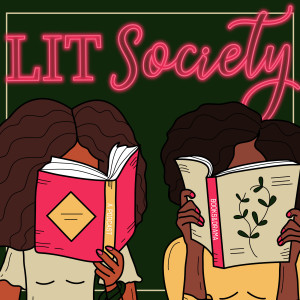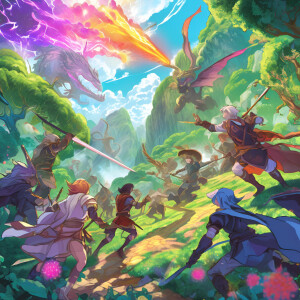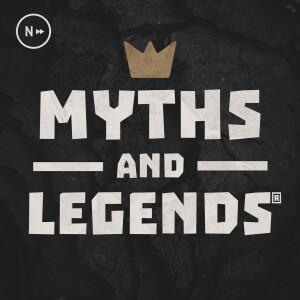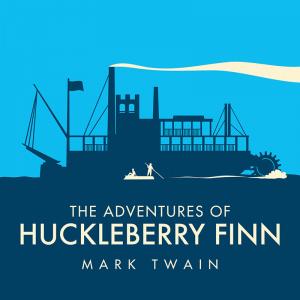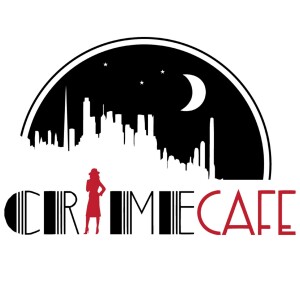

My guest interview this week on the Crime Cafe podcast is with the spy thriller novelist, Howard Kaplan.
He has a fascinating story or two in him, for sure.
For a PDF copy of the transcript, click here.
Debbi (00:12): Hi everyone. My guest today has a most interesting background in international affairs. I would like to talk to him more about that, actually. Let’s just say his work was so interesting, he got picked up by the KGB and interrogated. Okay. A native of Los Angeles, he’s lived in Israel and traveled throughout Lebanon, Syria, and Egypt. He’s the author of the Jerusalem Spy Series, the latest of which is The Syrian Sunset. It’s my pleasure to have with me Howard Kaplan. Hi Howard. How are you doing today?
Howard (01:32): I’m doing fine, thank you.
Debbi (01:34): Excellent. Good, good. Your background is just fascinating. At the age of 21, you actually were sent on a mission to smuggle out of Russia, a Soviet dissident’s manuscript on microfilm to London?
Howard (01:47): Yes. I actually went to Russia twice to consecutive summers. It was right around my birthday’s in July, so I think it was one right before I was 21, and right around the time I was 22. And it was old school stuff. These were before the technology era where at that time the KGB had a single agent who monitored every Xerox machine in the Soviet Union. They could do that because it was a crime to have unemployment. So they gave everybody a job and they used to have something called Samizdat, which was self-published, where people would go into a typewriter and type a manuscript with onion skin, which is very thin paper and carbon paper. Most people don’t even know what these things are anymore.
Debbi: (02:51): I do.
Howard (02:52): And you would get several copies and they would be circulated underground. So I was not involved in how they transferred this manuscript to microfilm, however I was involved. When I met with them, I had, again, pre-digital age, lots of rolls of film in a camera bag, some exposed pictures I’d taken, some not. So we took a, this was prearranged, a fresh roll of film, slid open the box carefully so it could be reglued together, opened the Kodak yellow canister, removed the regular film, placed the microfilm in, taped a lead of film back in because they used to come with like six inches of film sticking out and glued the box together and threw it in the box. Wasn’t somebody, I thought it was a very good idea and it was unchallenged on the way out.
Debbi (04:00): And it was much less conspicuous than a pumpkin.Howard (04:06): So I was bold and I thought, oh, this is easy. I can go back every year and do this kind of thing. And that turned out to be misconstrued because I went back the next year and I got arrested for meeting with dissidents. But fortunately, I’d actually transferred a different manuscript to the Dutch Embassy at that time because again, they’re KGB agents. They would stand outside a little phone booth like a London booth, and Russians couldn’t enter a foreign embassy. But when I was arrested, I didn’t have anything incriminating on me, and they didn’t know actually about any of these prior events. They didn’t even know I’d been in Russia the year before. I had a new passport, still with my name, and they were just picking me up for meeting with dissidents, with people protesting the government.(05:06): And so they interrogated me for a few days. It was generally polite. Interestingly, in Moscow, the Russians have a great interest in Jack London, in the writer, I think because the Canadian Arctic, if that’s a proper term, is reminiscent of the Soviet North, the Russian North and Siberia. And so they’re very akin to his writings. He’s one of the writers that’s most sought after in Russia. Now they can get books. It’s a different world. And they asked me a lot about Jack London novels, and I wondered if this was for a long time, meaning years. I wondered was this surreptitious? Were they trying to get me—this one interrogator who spoke perfect American English. Was he trying to relax me, so I gave up anything? But I concluded, I just read it in a novel, in one of the Martin Cruz Smith novels. Again about Jack London, the Gorky Park writer, and I concluded they just wanted to know about Jack London, and we had a lot of time because I wasn’t going anywhere.
Debbi (06:26): That’s fascinating. That really is. Let’s see. Tell us about the Jerusalem Spy series and what inspired you to write it.
Howard (06:36): I did my junior abroad in Jerusalem. I got wedded for a taste of traveling, and then I had these, I went to the Arab countries rather than study for finals. Those days, again, I keep talking about like I’m old, but my son’s getting married next week, so maybe I am a little bit, where security was less concerned. I was able to go to Cyprus to the American Embassy, and they issued me a new passport on the spot as long as I gave them my old passport, which had Israeli stamps in it for them to hold in the safe in the embassy in Nicosia. So for a number of years I had two active passports and it wasn’t terribly special, but they only allowed me to have one in my possession. And I went to Lebanon the first time from Cyprus, and then I went to Syria, which became a passion of mine in my life. Up to this day, I’m helping Syrian refugees who’ve come to Los Angeles with adjusting, sometimes aiding them with financial for legal issues. Often they’re about divorce and not about asylum and visas. So I wrote these five books. I think there are five. There’s one that’s not republished, so I’m always confused how many I have. You have to find it online.Debbi (08:30): I understand.
Howard (08:30): It’s an old hardcover edition, it’s not digital. About sort of moral ambiguity, gray issues I can say now because it’s a current time in the Middle East. My parents were Holocaust survivors. My father lost his entire family in Poland. My mother was in Auschwitz. These things affected me and affected me maybe in a way that’s popular with some and unpopular with others. I’m very unhappy, which is an understatement to see what Israel is doing in Gaza, starving people. My mother, illustrative of this point, she was a very attractive woman, Hungarian, blue-eyed blonde, and her identity was very much centered on her looks. That’s what she cared about. And so she always was slim and whatever well about in her mid-eighties, early eighties, she got dementia and the first thing she said was—not the first thing, but very quickly—she said, I didn’t eat for a year. I’m going to eat. Because she was referring to so many decades earlier to not being able to eat in Auschwitz. And she blew up about 60 pounds before everybody got a sort of control.
(10:03): She was still cooking then. Then later, she was put under a more restrictive diet. But for me to see Israelis, Jews starving a population in the way my mother and her family and my father’s family, most of them died in Auschwitz too, is a shocking experience for me and incomprehensible and an unacceptable and an unforgiving experience. So I’ve been writing about the conundrum of these areas. I’ve written a lot, as I said about Syria, and even now we have my Syrian friends tell me my latest book, The Syrian Sunset deals with the period of Bashar al-Assad and chemical weapons. Now, there’s been a new regime come in, and I have scenes in the novel about Sednaya Prison, which was an awful place in some detail. And the prison has been liberated for the first time in decades, and everybody’s out, it’s closed and the horrors revealed.
(11:20): However, the new government in Syria is greatly fundamentalist. They want women to ride in the back of the bus separately. They’ve closed the great music school in Aleppo in northern Syria because music distracts from piety and study of religion in Islam for fundamentalists, not for your average wonderful Muslim, but for these fundamentalists. So now you have more ambiguity. You have people who threw out the murderous Bashar, but they’re suppressing women’s rights, killing in their own right, and they want to stop co-ed education. And as his friend of mine said, even in Tehran in Iran at the university, men and women study together, but in Syria, they want to stop it. So these are the kinds of things I’m writing about in the series of novels, historical novels.
Debbi (12:21): Well, these are very, very timely and important topics. I’m really glad you’re doing this. I noticed you’re on a website called We Are Not Numbers. As a big fan of the old TV show, The Prisoner, I couldn’t help but be intrigued by that particular line.
Howard (12:45): I don’t remember how I got started with them even. It’s been a few years, it’s not happening now because of the war in Gaza. But before this last war, this group, I used to mentor writers in the Gaza Strip via Zoom and Facebook with their stories, which were invariably autobiographical.
(13:14): And their line was, we are people, we are not numbers. And one in particular that I’ve talked about and written about, a young woman’s story, and I had mostly women. I had all women in fact, because for some reason the men weren’t doing it. The women, maybe they felt more open, maybe they felt freer, maybe they weren’t worried about saving face. But she talks about her really close friend who got very ill, couldn’t be accommodated in the hospitals in Gaza. So she got flown to Jerusalem to attend, to be taken care of in the Israeli Hadassah hospital, and she got to walk around and see the city. And the author who’s writing this autobiographical story is talking about how her whole life, she lives in this strip of 25 by five miles and she’s never been out and she’s not allowed to leave. It’s blockaded by Egypt on the south and by Israel on the north and on the seas by the Israelis. And she says she wished she could get deathly ill so that she could be taken to Jerusalem and see this wonderful city that’s her homeland, also. And I find as often happens, sometimes real life is more powerful and even what you can make up, but I can steal these experiences somehow and recraft them into fiction. But that was the most moving story that I had from working with these people in We Are Not Numbers.
Debbi (14:58): Oh my gosh, that really is, that’s something else. Would you consider yourself to be a spy novelist? How do you describe your writing to others?
Howard (15:10): I think I do in the way that le Carré is a spy novelist. I did have these experiences when I was young and I got connected with several espionage organizations and also just as a thriller writer in general. I’m not a crime writer. These are not mysteries in terms of, as I mentioned, the Martin Cruz Smith books, which I’ve been reading a few of them recently. They’re really international thrillers and spy novels.
Debbi (15:53): Yes. Yeah. What kind of writing schedule do you keep?
Howard (15:59): I’m a morning person altogether, and it seems, it’s funny, I was talking, I was at a chiropractor today and he was early and I was early. It was an eight o’clock appointment. We were both there at 10 of, and he started telling me about how his father was always early to everything. And I said, my father was always early to everything. So I think these are learned behaviors. I don’t think they’re genetic, but he said to me, that was a wonderful line. He asked his father, why do we always show up early? His father said, so we can relax. And I thought that was just precious because I have the same mania. But the truth is, if you arrive casually and you go relaxed and you get there at a reasonable time, you’re relaxed the whole time. You don’t have to rush maniacally to get there early in order to relax. So again. Yeah, these are things that interest me as a writer. So when I heard that, I thought, that’s just fabulous.
Debbi (17:05): That’s a great character point right there. Yeah, I really liked it. I hustled to get there so I could relax. Yes. That’s awesome. Let’s see. What writers have most inspired your work?
Howard (17:21): Le Carré I think in terms of quality, and there’s an Americans spy novelist, it’s unclear to me how well known he is. I read a lot of the Graham Greene books when I was younger. They were of great merit. But there’s an American writer who died only recently, had a very, very long career. His name is Charles McCarry, and he wrote a six to 10 novels. I don’t remember exactly how many, about an American CIA agent called Christopher. His first name was Christopher, and those are, I looked for really good writing. I met Clive Cussler at an event once, and he was just the most sweetest man around. We corresponded. He used to hand write me notes on his stationary, but he didn’t have the literary prose of these other two people, which I think inspired me more than anybody else.
Debbi (18:28): Wow. Yeah. Those are good people to be inspired by. Let’s see, one of your books, The Damascus Cover was made into a feature film. I happened across a podcast where you were talking to somebody about that, let’s see, the podcast was called Follow Your Dream?
Howard (18:51): I dunno. I’ve done a few podcasts. I did real live interviews before there were podcasts. The movie was filmed, the book was filmed years after the novel came out, A director came across it through a friend, who had read it?
Debbi (19:12): The story. Tell the story about that.
Howard (19:13): And said, I want to do this. He said, I think I can get financing. And I met him for coffee and I said, okay, we did a little deal. I signed it. He brought papers, and in actuality, it took 10 years for him to get the financing. And one time he called me up and said, come meet me. I have some news. We to meet a Peet’s Coffee at Beverly Hills, which is no longer there. It’s a victim of the pandemic. It’s now a hair salon or something. That’s the new world. And he said, I need to renew the option of the agreement one more time,
(19:58): Because it expired in July. It was like May. And he says, we’re going to start shooting in October. So some of my Hollywood friends said, well, you ought hold him up for more money now. And I said, I don’t do that. This guy’s been working for 10 years to get this done. It’s incredibly hard thing to do. I’ll extend it for a hundred dollars because I’m interested in the film getting made, not in five figures or whatever it might have been. And he got the film made with some very well established stars. I remember Jonathan Rhys Meyers stars in it. I get my son’s on my mind. I just saw him yesterday and the wedding is this coming weekend. And I remember telling him, we had Jonathan Rhys Meyers, and he said, are you sure? Because it seemed somewhat improbable. And then they got Sir John Hurt to come and a really highly talented indie woman actress Olivia Thirlby, who appears in a good number of things. First thing comes to mind, she was the sidekick in Juno many years ago as a teenager.
Debbi (21:08): Oh, my gosh. Wow.
Howard (21:09): That was her opening and she was in the, well, she’s been in a number of things, Dredd. And she’s actually, I shouldn’t say this, but John Hurt has passed, so I can say it. I think she’s the best of all of the stars in the film.
Debbi (21:28): Oh my gosh.
Howard (21:29): I think she outs shines the bigger men who have bigger.
Debbi (21:34): Oh my goodness. Well, that’s awesome.
Howard (21:37): It’s free on Tubi. It moved around. It’s been on everything. It used to be on Prime. It used to be on Hulu, and now it’s rentable for those things. But it’s free on Tubi with obviously commercials. That’s how that,
Debbi (21:53): That’s awesome. Well, that’s great. I love that you took the long view in terms of paying the producer or actually the director, I should say, in terms of the option, because—
Howard (22:06): He stuck to it. He really,—
Debbi (22:07): That’s money that you saved him that can go to those actors.
Howard (22:11): Well, and that it just—
Debbi (22:12): That’s important.
Howard (22:13): It also kept good relations. He didn’t feel like I was holding him up because I could.
Debbi (22:19): Exactly, exactly. And so much of this depends on relationships and trust.
Howard (22:25): I think so. And we’re still on good terms. He calls me periodically.
Debbi (22:29): That’s right, that’s right. That’s exactly right. I think that’s a very smart move.
Howard (22:32): One of the distributors, I think the international distributor got bought out by a bigger company recently. So he said we might have some additional areas where we didn’t sell, where it can be distributed now because they have a little more clout. And sometimes what they do, the film is 2018, so it’s not a new film. They package them with a number of slightly older films and then hand them to Denmark. So you can buy this. So there’s not much money in it, but there’s a little bit, and then it’s out there.
Debbi (23:06): There you go. There you go. And this director now has an additional credit. As I understand it, he had only directed one film before this.
Howard (23:15): Yes. And he made a horror film.
Debbi (23:17): Was it a short or a feature?
Howard (23:19): I haven’t seen it. I think it was a full length horror feature, like shot in the Philippines, something like that.
Debbi (23:24): Okay, cool. Well that is really cool. That was cool for you and for that director.
Howard (23:30): Yes, certainly a win.
Debbi (23:32): It was a win-win.
Howard (23:33): And I have to say this, I’m divorced. I mentioned my son, but ever since the film came out, my dating life’s exponentially better. People look up, they say, you have a film. I mean, it’s ridiculous. I’m still the same person, but—
Debbi (23:48): That’s funny. Yeah, I know. I know what you mean.
Howard (23:50): But, really, it’s just … often the first question people want to ask me.
Debbi (23:56): It’s very interesting, especially the rather lucky kind of way that your friend happened to know somebody who’s a director who wanted to go a bit farther with that. Were you involved in adapting the novel? I mean, adapting.
Howard (24:13): I wasn’t involved in the screenplay, but once they shot, I was involved. They asked my opinion on the editing. And I was actually quite involved on the editing, but not on the original adaptation. The director did it. He bought, this was his project to write the script and to direct it and raised the money. So it was one of those kind of.
Debbi (24:42): It’s tough.
Howard (24:43): Yes.
Debbi (24:44): You have to find somebody who really believes.
Howard (24:46): Right. And it’s really all about money. Because you can hire people.
Debbi (24:49): That’s it That’s it.
Howard (24:50): If you have the money, and for example, this film shoot was two months. So there are a lot of actors who work for two months, if they have a window rather than just sit around. So it’s possible to get people, and I think John Hurt came on for five days, also serendipity. How did they get John Hurt? Sir John Hurt the great? He had a house in Morocco and they were shooting in Casablanca, Morocco. So he told the director, I’ll come for a week. You have to do all my scenes, and at five o’clock on Friday, I’m leaving. So you better be done.
Debbi (25:31): Oh yeah. Yeah.
Howard (25:32): And they were, he did. I wasn’t there. I didn’t meet him, but.
Debbi (25:39): Well, that’s all of the stuff that goes into movie making and there’s so much, it’s really just a complex “takes a village” process. But what advice would you give to anyone who would like to write for a living?
Howard (26:00): Twofold. One is perseverance, and the other is equally practical. And that is find an additional revenue stream to make money so that you’re not under the pressure, the gun of having to support yourself exclusively from writing, which may or may not happen. Stock market, Instagram influencer, A lot of women can make particularly a lot of money doing that. I think you need to be practical in that sense. And the others just persevere. Again, I heard a story today about a woman who self-published young adult fiction. Then she kept going. She got a small publisher for her second book, and she’s a TikTok influencer. She has a following on TikTok. She’s 20 something and she’s now getting a deal with Harper. They’re talking to her about a deal. Her books are well received. So that’s exactly what I mean, persevere. I don’t know if she was young, if her family was helping her financially, that counts as a revenue stream as far as I’m concerned. If you have parents who want to contribute to that for a period of time, they’re not going to do it forever. But I think there’s no reason to say you have to do this on your own. But I think those are the twin things. You need to work hard and persevere, and you need to prepare for earning a living if it doesn’t work in that direction.
Debbi (27:53): Yeah, yeah, absolutely.
Howard (27:57): We hear the stories, I find it kind of annoying the story of the actor, Jon Hamm, for example, who struggled and struggled and struggled for 10 years or whatever, didn’t make it, couldn’t do anything, was presumably dirt poor and then became a global star. And the subtext seems to be, if you keep at it, that can happen to you too. But the truth is, for every person like that, there’s a million who don’t make it or pick your number, 500,000, 200,000. Working and persevering is not a guarantee, is not even maybe a likelihood. It’s a passion. So when I hear people use something like that as an illustration of how you should persevere, as I say, I get annoyed. I think it’s not, he’s the way, outlier exception. Many more people have fallen by the wayside and succumb to their parents telling them to go to law school.
Debbi (29:16): And invariably, the way they made it will be different from the way somebody else made it. It’s just you find your opportunities, you take advantage. That’s what it kind of comes down to.
Howard (29:31): Yes, there’s always, I think it’s a small cliche that it’s skill and luck together. And I’ve had a lot of lucky breaks and a lot of unlucky breaks. For example, The Damascus Cover, when it first came out, the editor, he handled it well. He sent the book out to all the paperback houses then without, not an auction, without a bid, without a price, and said, what do you think? And they all came back and said they wanted it. It was a kind of really 10 out of 10. And there was one company that bid a certain amount, $75,000 I think was the high. They just came in and said, we’ll give you 75. So they held a party, which in other words, an auction. And they wanted Bantam Books, which was the big paperback house at the time to go. And the editor-in-chief, whose name is Mark Jaffe, wanted to go to a hundred, but his underlings said no, and they didn’t. And there was a difference between the 75 and a hundred, because when they pay a hundred, it’s a much bigger book in terms of what they promote. So I did fabulously well, but I missed that last leg. And then many years later, the book got filmed anyway and got a big audio book contract because of the film. So it just kind of wanders around like that.
Debbi (30:56): That’s right. Just never know. Nobody knows anything. As William Goldman once said, just never know. Is there anything else you’d like to add before we finish up?
Howard (31:14): I’d like communicating with readers. I’m on, the best place for me is really Facebook. You can find me. I have an author page under my name and a regular page. So I’m more than welcome. I’m more than inviting people, aspiring writers, people who’ve read the books and people haven’t read the books, whatever they want to do. That’s the best place for me. And I’m very, I have time, so I’m happy to answer email, not email, what do you call it? Instant messages and messages on Facebook. If I can be, as I say, I help certain people with certain things that’s sort of random, which I choose to do and which I choose not to do. So that would be about my only other invitation.
Debbi (32:08): Well, thank you so much for being here, Howard. I really appreciate your time and all you had to say.
Howard (32:14): Thank you for talking to me across the country.
Debbi (32:19): Well, it’s my pleasure. Believe me. Your story is just fascinating. What you’ve done, the work you’re doing is fantastic. I just want to say everyone listening, thank you so much. Thank you to my patrons on Patreon. I’m putting bonus episodes together as fast as I can, and I’ll have them for my patrons there. Patrons get bonus episodes and ad free episodes among other perks. So check out my Patreon page. Meanwhile, until next time, when my guest will be June Trop, take care and happy reading. Be seeing you.
*****
Check out our Patreon page!
More Episodes
All Episodes>>Create Your Podcast In Minutes
- Full-featured podcast site
- Unlimited storage and bandwidth
- Comprehensive podcast stats
- Distribute to Apple Podcasts, Spotify, and more
- Make money with your podcast
